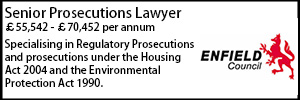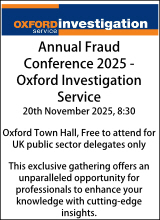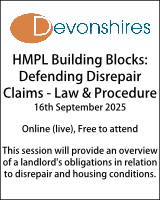Soho Society fails in legal challenge to grant of licence for gin distillery
Westminster Magistrates’ Court has refused to intervene in a case in which the Soho Society claimed Westminster City Council was endangering public safety by granting a licence for tasting rooms and a gin distillery beneath an inhabited building.
- Details
Senior District Judge Paul Goldspring, the chief magistrate for England and Wales, said other regimes covered the issue of flammable ethanol in residential buildings and distilling was not itself a licensable activity.
Green Room Distillery applied to build the gin distillery and tasting rooms in a Grade II* listed building the upper part of which is inhabited.
The Soho Society said this raised concerns about public safety, particularly fire safety, due to the storage and use of ethanol.
It said Westminster’s licensing sub-committee relied on incorrect evidence and failed to impose adequate conditions to mitigate the risks. The society also said the committee did not properly consider cumulative impact premises selling alcohol.
Judge Goldspring noted the distilling process did not involve the retail sale of alcohol and is governed by separate regulatory regimes, including the Dangerous Substances and Explosive Atmospheres Regulations 2002 and by HMRC.
“These regimes provide comprehensive control over the risks associated with distilling activities, including fire safety,” he said.
An expert report by Professor David Price, provided by the society, advised the fire risk could only be properly mitigated by eliminating the hazard altogether, “namely, by not permitting distillation at the premises”, Judge Goldspring noted.
Tim Lord, chair of the Soho Society, described “the community’s growing frustration with the cumulative impact of commercial activities in Soho, exacerbated by recent changes to planning law - specifically the widening of Class E, which allows light industrial uses without a planning application”, Judge Goldspring said.
The judge said James Hayes, a principal licensing officer at Westminster “confirmed that the sub-committee had accepted late evidence without express consent from all parties.
“He accepted that the council had not commissioned independent expert evidence to counter Professor Price’s report, despite its significance. He also acknowledged that cumulative impact assessments (CIA), while part of the council’s policy framework, were not explicitly addressed in the sub-committee’s reasoning.”
Giving his decision, Judge Goldspring said: “On one view, because under the Licensing Act 2003, distilling is not classified as a licensable activity and does not directly regulate the act of distilling itself, the appeal must fail there without the need for further consideration.
“While the argument…has merit, it is essential to evaluate the broader implications and regulatory requirements comprehensively.”
Judge Goldspring pointed out that since distilling is not covered by licensing rules, revoking Westminster’s licence grant could not in itself remove the society’s concerns about fire.
He said ‘works conditions’ imposed by Westminster had to be satisfied before any licensable activities can take place and these included the premises being assessed as satisfactory by the council’s environmental health consultation team
“It could be said that the conditions imposed by the council may be so restrictive as to effectively halt the venture before it begins,” Judge Goldspring said.
“The requirements, including obtaining a lease and other necessary consents, may present significant obstacles that could prevent compliance. If these conditions are overly burdensome or unattainable, they could undermine the feasibility of the distilling operation, thereby negating the initial argument's practical benefits.”
He said the society’s objections about cumulative impact were “not supported by the evidence”.
Mr Lord told Local Government Lawyer that although there was a costs order against the society, reports that this was for £44,000 and could bankrupt it were wrong, but there would not be an appeal.
He said the society would press for a change in planning legislation so that distilling flammable alcohol was not permitted on residential premises.
Westminster has been contacted for comment.
Mark Smulian
Trust Solicitor (Employment & Contract Law)
Trust Solicitor (Public & Healthcare Law)
Locums
Poll



























